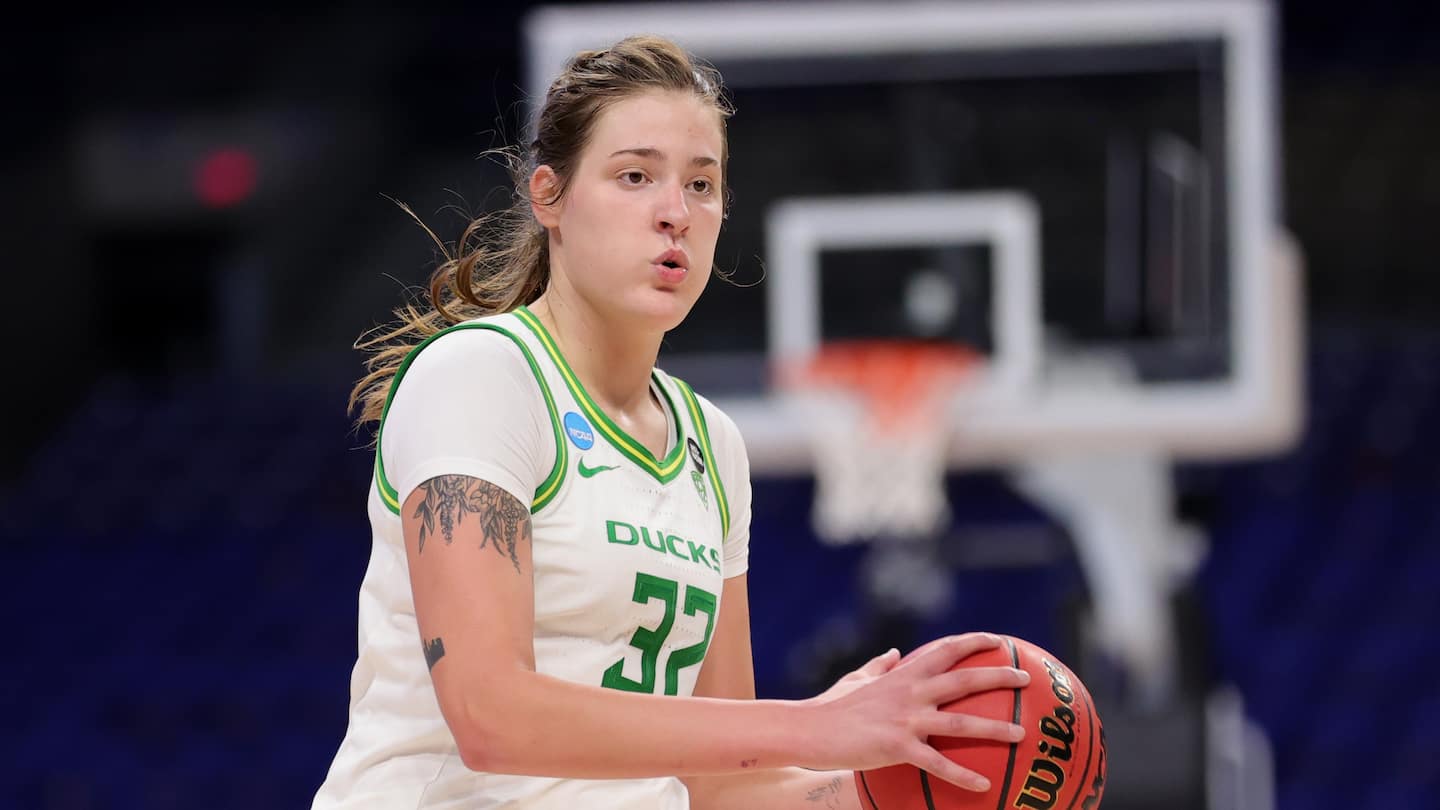As complaints of gender inequity mount, NCAA President Mark Emmert agrees to a review

On Tuesday, Georgia Tech women’s basketball coach Nell Fortner tweeted a message wryly thanking the NCAA for exposing the disparities.
“Thank you for using the three biggest weeks of your organization’s year to expose exactly how you feel about women’s basketball — an afterthought,” she wrote. “Thank you for showing off the disparities between the men’s and women’s tournament that are on full display in San Antonio, from coronavirus testing, to lack of weight training facilities, to game floors that hardly tell anyone that it’s the NCAA Tournament and many more. But these disparities are just a snapshot of larger, more pervasive issues when it come to women’s sports and the NCAA. Shipping in a few racks of weights, after the fact, is not an answer. It’s a band-aid and an afterthought.”
Later in the day, in a letter responding to demands made Friday by the NCAA Committee on Women’s Athletics, Emmert wrote: “I will be calling for an independent review to closely examine the circumstances surrounding the events that transpired in San Antonio. This review will also include an analysis of the allocation of financial and human resources, facilities, and decision-making processes and procedures to ensure that all student-athletes are equally supported at our NCAA championship events.”
The controversy began Thursday, when former Oregon and current New York Liberty guard Sabrina Ionescu shared a pair of images juxtaposing a single dumbbell rack and stack of yoga mats that served as training equipment for women’s players inside their San Antonio tournament bubble to the massive weight facility that had been assembled for men’s players in Indianapolis.
In addition to complaints of subpar facilities, meals and player gifts, college officials revealed that women’s players were being administered a different, less accurate daily coronavirus test than players in the men’s bubble.
Those discrepancies drew widespread condemnation from professional players, including the Los Angeles Sparks’ Chiney Ogwumike and Ja Morant of the Memphis Grizzlies. On Friday, NCAA officials acknowledged what they called a “blemish” in their tournament efforts. Lynn Holzman, the NCAA’s vice president of women’s basketball, later described those issues as an “operational miss” and partially attributed them to a breakdown in communications within the organization.
“The issue around the weight room came about as we became aware that there was a difference between what was being provided to our women’s basketball student-athletes here at our championship versus what was provided at the men’s championship in Indianapolis,” Holzman told ESPN. “So once we became aware, we immediately started working to rectify the issue. And as I said, we fixed it.”
Oregon forward Sedona Prince showcased the updated weight room via social media Saturday. But others around the sport have continued to voice frustration about persisting inequities and the decision-making that required a “fix” in the first place.
South Carolina Coach Dawn Staley pointed to other inconsistencies in a message via social media Friday, including the NCAA’s exclusion of the women’s tournament in the description of its official March Madness Twitter account.
Days later, there were complaints about the inaccessibility of photos from the women’s tournament on the NCAA’s media site.
“How do we explain that to our players? How can an organization that claims to care about ALL member institutions’ student-athlete experiences have a copyrighted term that only ‘represents’ one gender?” Staley said before touching on other disparities spotlighted on social media.
“There is no answer that the NCAA executive leadership led by Mark Emmert can give to explain the disparities. Mark Emmert and his team point blank chose to create them!”
Emmert was also called upon Tuesday by three men’s players to respond more quickly to concerns expressed by them and others about several issues relating to what they described as the NCAA’s inequitable approach to its athletes.
Geo Baker of Rutgers, Jordan Bohannon of Iowa and Michigan’s Isaiah Livers have been leading voices among players who want to be compensated for the use of their names, images and likenesses. They helped spread a hashtag, #NotNCAAProperty, last week and requested meetings with Emmert and with members of President Biden’s administration.
In the letter, the players expressed disappointment over what they described as Emmert’s decision to delay a meeting with them “for at least two weeks.” They asked that he meet not only with them but also with women’s players and with an official from the National College Players Association, an advocacy group.
“From our perspective,” the players wrote to Emmert, “it’s difficult to imagine any higher priority you may have at this time than addressing concerns that are at the core of state and federal college athletes’ rights legislation, an upcoming US Supreme Court ruling on college athletes’ economic freedoms, and the NCAA’s ongoing discriminatory treatment of female basketball players in its tournament.”
Former Notre Dame coach Muffet McGraw, who won two national championships in 33 seasons with the Fighting Irish, said Saturday that the current sources of player anger are reflective of the NCAA’s treatment of women’s sports in the past.
“Tired of having to preface everything we do with the word ‘Womens’ which would be fine if the men had to do the same, but they don’t, and when they don’t it makes us look like the JV tournament to their event,” she said via Twitter. “The fact that there are inequities in facilities, food, fan attendance, and swag bags is not what bothers me. What bothers me is that no one on the NCAA’s leadership team even noticed.”
Added Stanford Coach Tara VanDerveer later that evening: “A lot of what we’ve seen this week is evidence of blatant sexism. This is purposeful and hurtful. I feel betrayed by the NCAA.”
Molly Hensley-Clancy contributed to this report.






